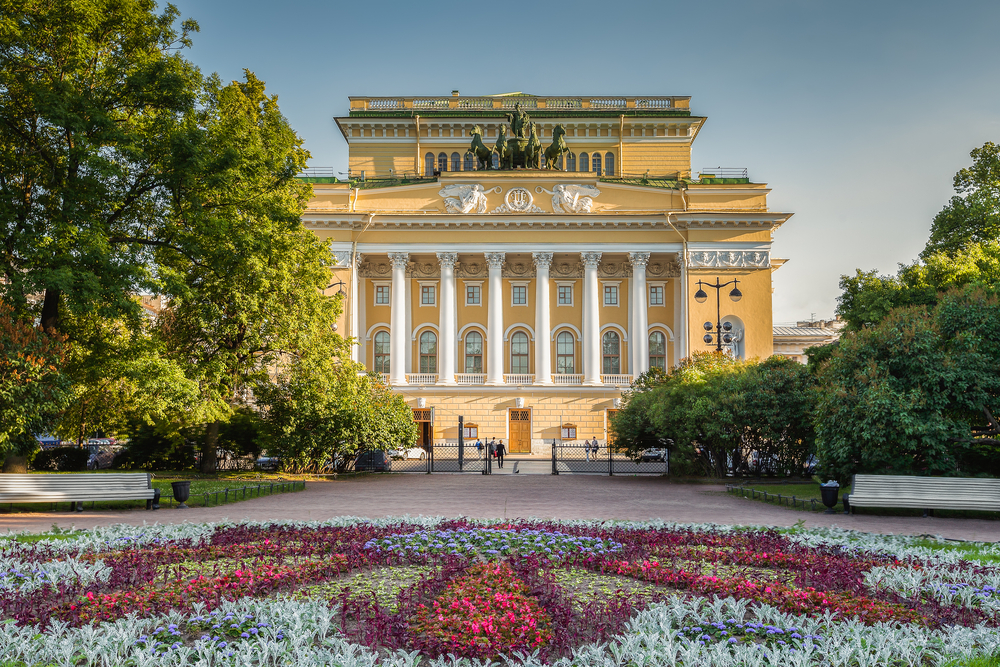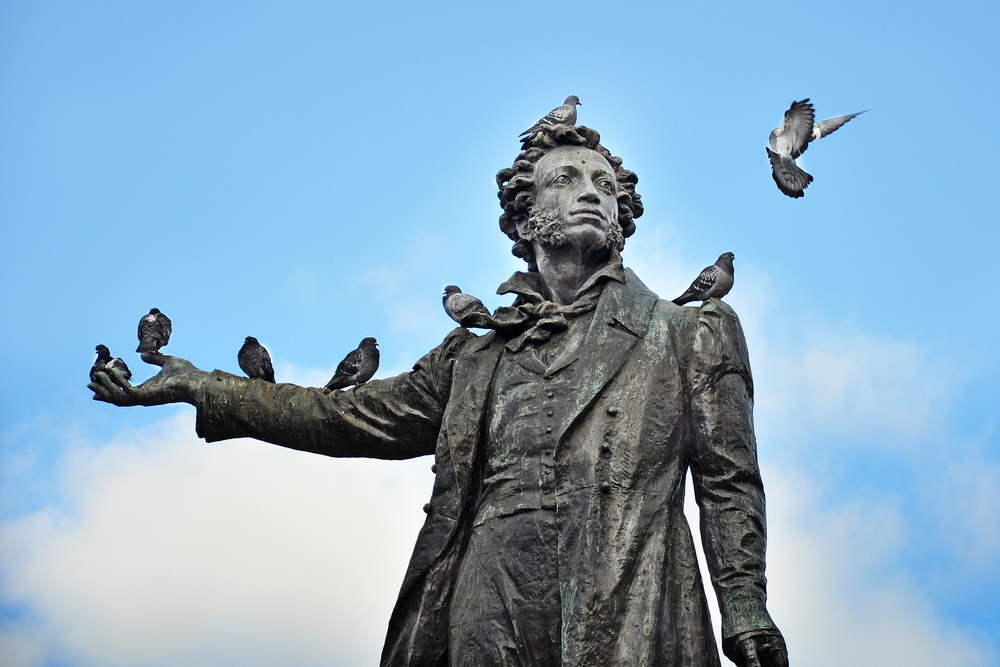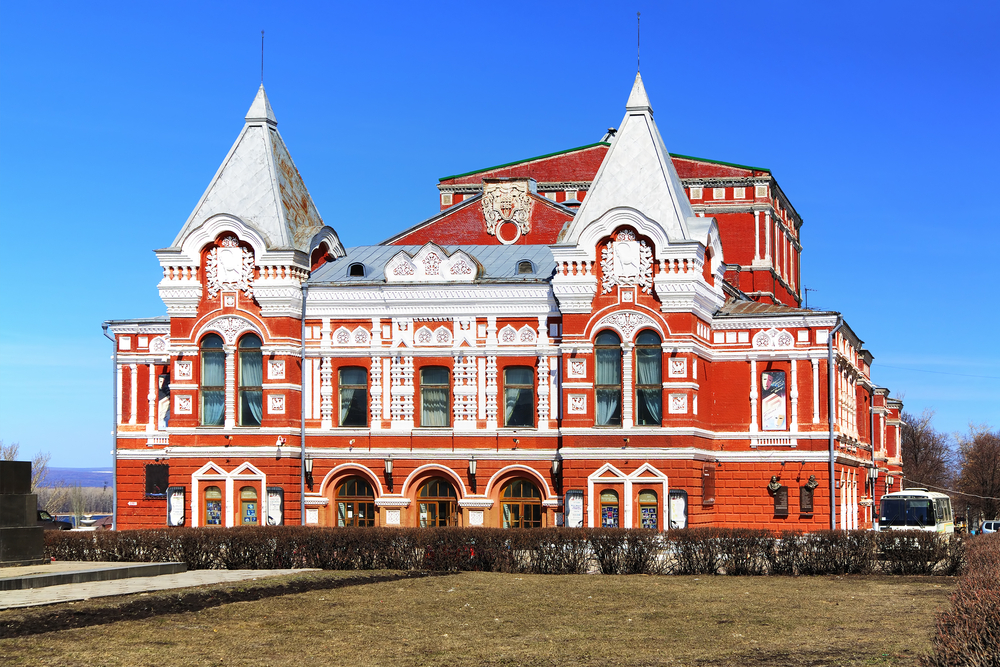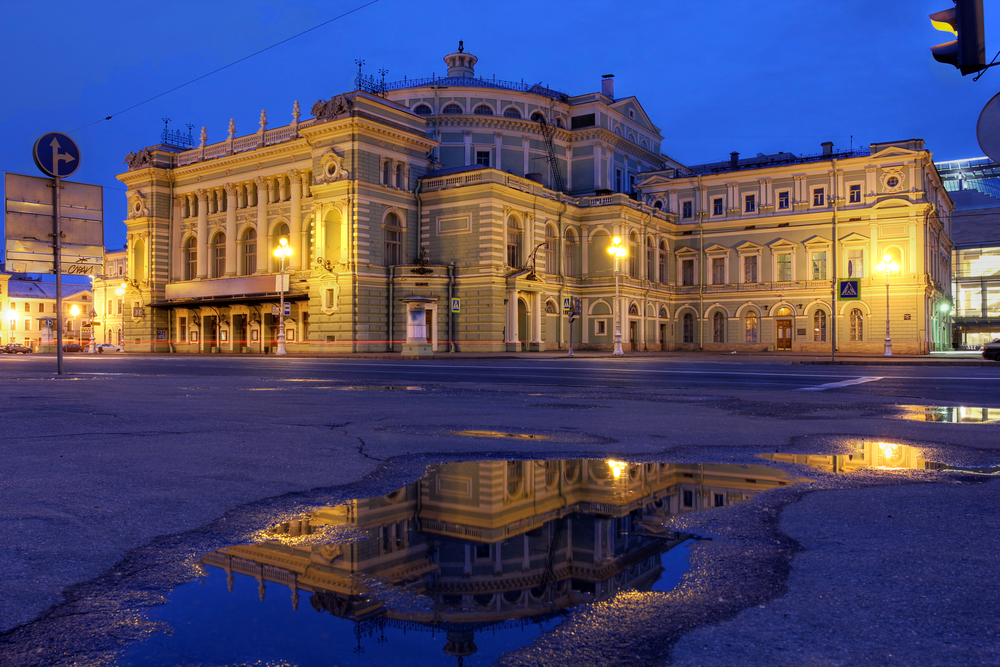Russian Theatre
Russia is deservedly proud of its theatre art. The approach of training actors developed by K.S. Stanislavsky is known everywhere in the world, theatre plays have been always written by the best writers, and hot performances express the tension of the epoch. Russian people have always gone to the theatre not so much for the entertainment but for revelation, for the truth.
Now, unfortunately the “truth” is often interpreted as rude candidness: obscene words, shouts or exposed flesh on the stage. There are many outrageous performances the meaning of which is evident only to their authors. Nevertheless, some theatres keep the great actory traditions, create timely but at the same time high-quality performances, and tickets to good theatres are sold months ahead.
Due to its nature, the opera art has stayed faithful to classics. Beside popular foreign operas there are many original works in Russia. Often they were created by the best composers of their times.

Repertoire
The XIX century gave the Russian theatre many brilliant performances based on plays by A.S. Pushkin, N.V. Gogol, M.E. Saltykov-Shchedrin, A.N. Ostrovsky. They are still popular, both in classical and new interpretations, as the themes risen in these performances are still relevant: the conflict between rascality and nobility, the false and the genuine, and of course Russia and its special color.
Opera scene also considerably enriched itself in the XIXth century. At that period M.I. Glinka, M.P. Mussorgsky composed historical operas, and N.A. Rimsky-Korsakov composed operas based on fairy-tales. Operas by P.I. Tchaikovsky, many of which are based on the plots from the Russian literature (“Evgeny Onegin”, “The Queen of Spades”) are really brilliant.
The beginning of the XXth century has become the time of experiments for the Russian theatre. “The new drama” entered the arena. It was focused not on the twisted plot but the individuals and their inner world, to which the actor should get into at the psychophysical level, according to Stanislavsky’s Method. A bright example of the “new Russian drama” is plays by A.P. Chekhov. Performances on social themes telling about the problems of various society levels also became very popular. Almost all plays by M. Gorky are about that.

At the same time there appeared the profession of the theatre director. Since then his “presence” in the performance was at least equal or even more important than that of the playwriter. The director could easily interpret the play, make the action completely conventional and fill it with most incredible metaphors. This tendency is still actual.
In the Soviet Union the theatre was strictly controlled by the state. The main trend was the “social realism” and the characters of plays were common Soviet people and their moral ideals: honesty, the desire of common happiness, modesty. After the collapse of the Soviet Union many good performances have been undeservedly forgotten due to their “Soviet” theme, but gradually wonderful plays by A.N. Arbuzov, V.S. Rozov, L.G. Zorin, and A.V. Vampilov have returned to the stage. Their plays are worth visiting to understand what Soviet people thought and felt. As to the opera, the best works were created by composers S.S. Prokofiev, D.S. Shostakovich, T.N. Khrennikov, I.I. Dzerzhinsky.
The late Soviet epoch with its political defrosting and consequent stagnation became the cradle of new tendencies. The plot has become even more psychological and themes hot. The musical component of plays has got the new meaning, and the new for Russian genre of rock opera appeared on the stage. One of the best plays is Juno and Avos at the Moscow theatre Lenkom – this performance is still on and all the tickets are always sold out. In those years the stage got a galaxy of talented actors, many of which now manage their own theatres.

After the collapse of the USSR theatres had faced hard times. Lack of prohibitions opened way not only to talented people but also to those looking for easy popularity due to disgraceful behavior. However several directions have gradually crystallized from the Chaos. Some theatres develop classical tendencies (G.A. Tovstonogov Bolshoi Drama Theatre in St. Petersburg), some are in search for new forms (Globus Theatre in Novosibirsk), and some try to show the tension of modern life in documental (Teatr.doc in Moscow) or humorous (“Kvartet I” in Moscow) performances. And practically all the theatres try to combine time proved old plays (or staging of classics) with contemporary works by modern playwriters. At the beginning of the 2000s the genre of musical came to Russia and quickly became very popular. As to modern opera, it is still in search for its own identity.
Favorite actors
The theatre stage of Russia has both many young and already enjoying deserved popularity actors. Most of them in parallel to their work at the theatre act in the cinema, which brings additional popularity (but makes their schedule subhuman). However the “multitasking” actors don’t give up trying to catch up with everything.
The deep immersion into the character, sincerity “to the chills and fever”, ability both to continue the old actory traditions and to keep the strong bond with the modern times are the distinctive features of many Russian actors. In some theatres representatives of the Soviet time “old guard” still appear on the stage in spite of their advanced years, and the audience starts to applaud them at the moment they appear on the stage.
The best actors and actresses: Yevgeny Mironov, Nelly Uvarova, Chulpan Khamatova, Konstantin Khabensky, Irina Pegova, Viktor Sukhorukov, Mikhail Porechenkov, Polina Kutepova, Polina Agureeva, Aleksandr Lazarev Jr., Mariya Aronova, Kseniya Rappoport, Elizaveta Boyarskaya, Sergei Makovetsky. From the “old guard”: Konstantin Raikin, Alisa Freindlich, Sergei Yursky, Valentin Gaft, Vasily Lanovoy.
Opera singers: Dmitri Jvorostovski, Anna Netrebko, Hibla Gerzmava, Olga Borodina, Oleg Videman, Nadezhda Kucher.

Popular theatres
Moscow and St. Petersburg have always been the acknowledged flagmen of the dramatic art, however in recent years there have appeared very powerful theatres in provincial cities, especially in the Urals and Siberia. In Moscow traditionally high rankings are kept by Sovremennik, Lenkom, the Russian Academic Youth Theatre, the A.P. Chekhov Moscow Art Academic Theatre, O. Tabakov’s Moscow Theatre, Satirikon, and Shkola Sovremennoy Piesy (School of Modern Play). In St. Petersburg the most popular theatres are G.A. Tovstonogov Bolshoi Drama Theatre, the Lensoviet Academic Theatre, the Maly Drama Theatre – Theatre of Europe, and the Alexandrinsky Theatre. In Novosibirsk the most outstanding theatres are Globus and Krasny Fakel, in Perm – Teatr-Teatr and U Mosta. Undoubtedly F. Volkov Drama Theatre in Yaroslavl deserves attention.
The best opera performances are offered at the Mariinsky Theatre in St. Petersburg, the Bolshoy Theatre and the Nemirovich-Danchenko Moscow Academic Music Theatre in Moscow. It is also worth listening to opera performances in the theatres of Perm, Kazan, Yekaterinburg, and Novosibirsk.
